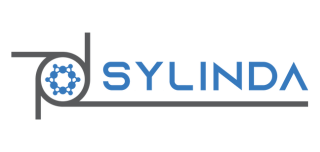
 Web Content Display
Web Content Display
SOLARIS centre
 Web Content Display
Web Content Display
 Web Content Display
Web Content Display
Sylinda
An international project, whose leader is SOLARIS, while the partners are the ALBA synchrotron (Spain) and two universities: Hochschule Niederrhein and the University of Bonn.
The consortium’s activities aim to encourage industry to use the SOLARIS research infrastructure and increase its capabilities. The project goals also include expanding the group of scientists that visit SOLARIS.
One of the main tasks in the project wasto support the construction of the beamline which is being built by SOLARIS and Hochschule Niederrhein. The new beamline is currentlyused for X-ray absorption spectroscopy measurements. Thanks to the Sylinda project, it has become a unique research infrastructure, enabling, among others, the testing of materials containing low Z-elements (from sodium to chlorine). These elements (such as phosphorus and sulphur) play important roles in the course of biological processes. Others such as silicon are used in industry (for the production of paint and adhesives, as an additive in rubber products, but also pharmaceutical articles). Currently, testing of these elements (in particular silicon and phosphorus) is not possible in any synchrotron centre in Europe.
During the project, an action plan that will allow SOLARIS to establish effective cooperation with industrial partners will be devised. The key issue is also to increase the recognition of the Kraków synchrotron centre among small and medium enterprises interested in research & development investments. In addition, a training program for early stage scientists in research management has been developed and implemented. In this program, the main focus was placedon explaining industry research needs and showing how they can be met.
To achieve all the above-mentioned goals, an Industry Liaison Office was established at SOLARIS. The ALBA synchrotron organized a summer school for young researchers. Took place short-term staff exchanges due to SOLARIS scientific team’s expand knowledge of research funding, innovation transfer, cooperation with SMEs, intellectual property law, and industry services. A workshops for representatives of small and medium enterprises were also organized and an international symposium for the European synchrotron community with the participation of world-renowned experts is planned for March 2024. At the same time, technical and scientific activities are being implemented. The beamline being built jointly by the Hochschule Niederrhein and SOLARIS will be equipped with a fluorescence spectrometer, which will greatly increase its research capabilities.
The "Sylinda" project will last until June 2024.
More about the project one can find on the project website www.sylinda.eu.
This project has received funding from the European Union’s Horizon 2020 research and innovation programme under grant agreement No. 952148.
